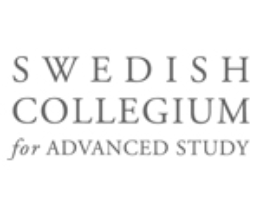Swedish Collegium for Advanced Study Uppsala (SCAS)

The Swedish Collegium for Advanced Study (SCAS) aims to provide optimal research conditions
for curiosity-driven research. The Collegium is a scholarly community where Fellows pursue
research of their own choosing in a context of interdisciplinary dialogue, discussion, and co-
operation. Since its foundation in 1985, we strive to protect and nurture independent inquiry,
collaborative and creative thinking, and to emphasize the importance of academic freedom world-
wide. Governmental support and support from major research foundations allow our invited
Fellows to engage in focused research and to collaborate across disciplinary boundaries.
Chartered by the Government of Sweden as an institute for advanced study, SCAS is a national
scientific institution and resource. The Collegium is open to applications from scholars across
the range of the human and social sciences, as well as from the natural sciences. SCAS hosts
advanced senior scholars as well as early-career scholars. All candidates are assessed on the
basis of their individual achievements and the quality and promise of their research proposal,
including those who apply within the framework of a group. Every year presents a novel mixture
of Fellows from all over the world who either work on their individual projects or who are part
of a cluster of scholars with similar interests.
Scholarly Profile
The Swedish Collegium has an ambition to articulate the significance of the social and human
sciences for an understanding of the contemporary and historical condition of humankind in its
diverse global contexts. This stance has long been a cornerstone of the profile and activities of
SCAS.
The most recent articulation of this ambition is the engagement in questions pertaining to global
governance. This has been realized by funding from Riksbankens Jubileumsfond (RJ) focused on
the instalment of a new research programme: the Global Horizons Fellowship Programme. The Global
Horizons Programme aims to advance multidisciplinary frontline research on global future governance
issues, focusing on large-scale challenges. The programme attracts scholars pursuing research on con-
temporary aspects of globalization and encourages thematic collaboration across faculty lines. The
programme revolves around three thematic areas: Global Knowledge Cultures and Regimes; Global
Political Predicaments; and Global Futures. The programme is future-oriented in its ambition to con-
tribute to the advancement of knowledge on contemporary forms of governance and their future
implications. The programme also offers a basis from which to reach out and engage with university
scholars across disciplinary boundaries, but also with public intellectuals, policy makers, and politicians.
In addition, the Barbro Klein Fellowship Programme contributes to the overarching aim of the Collegium
by nurturing research on cultural and social diversity, cultural heritage and creativity, societal structures
and public resistance, and varieties of cultural expressions in local and global perspective.
The Natural Sciences Programme aims at advancing cutting-edge research in the natural sciences, as well
as at bridging the gap between these and the humanities and social sciences. The expansion into natural
sciences has been made possible by support from the Erling Persson Family Foundation and the Knut and
Alice Wallenberg Foundation. There are four thematic foci of the programme: Theoretical Biology; Human
Brains and Societies; Measurable Human; and Exoplanets and Biological Activity on Other Worlds.
The academic profile of the Collegium has grown out of a consistent ambition to study and inquire into the
variety of trajectories that characterize the development of human societies. This has found expression in
collaborative research involving historians, social scientists and linguists, resulting in reformulations of the
idea of the Axial Age but also in the development of the idea of multiple modernities. It has also brought
forth efforts to reconceptualise shifts occurring on a global scale during the tenth to thirteenth centuries
in an age of transregional reorientations. These efforts have been further pursued with a focus on trans-
formative periods in global history, in the so-called Karlgren-Eisenstadt Programme. In addition, the
Collegium has consistently explored links between the economic sciences, philosophy and other human
and social sciences. Dimensions of this research are reflected in the International Panel on Social Progress
(IPSP), an endeavour that is uniquely ambitious and involves scholars on a global scale. Another consequence
of the Collegium’s engagement in this field has been a strengthening of study programmes with a focus on PPE
(Philosophy, Politics and Economics) in universities on different continents. More recently, the Collegium’s
commitment to research in the field of global governance attracts scholars across disciplines to engage in
studies related to governance challenges associated with intensified globalization.
The Collegium of today is an institution that offers scholars the opportunity to be driven by their own intellec-
tual curiosity; that crosses disciplinary boundaries; and remains small enough to build a sense of community.
By doing so, research at SCAS may provide insight, innovative knowledge, and intellectual breakthroughs
that contribute to the advancement of science and society at large.
Institutional Collaboration
SCAS interacts with a large number of scholarly institutions. Especially important is the collaboration
of ten leading institutes for advanced study within the SIAS group (Some Institutes for Advanced Study),
of which the Collegium was a founding member in 1991: Center for Advanced Study in the Behavioral
Sciences, Stanford University; Institut d’études avancées de Nantes; Institute for Advanced Study, Princeton;
Israel Institute for Advanced Studies, Jerusalem; National Humanities Center, Research Triangle Park, NC;
Netherlands Institute for Advanced Study in the Humanities and Social Sciences; Radcliffe Institute for
Advanced Study, Harvard University; Stellenbosch Institute for Advanced Study; and Wissenschaftskolleg
zu Berlin. In 2004, the Swedish Collegium was a founding member of the network of now twenty-five
European institutes for advanced study (NetIAS). SCAS also has collaborative links to other institutes for
advanced study.